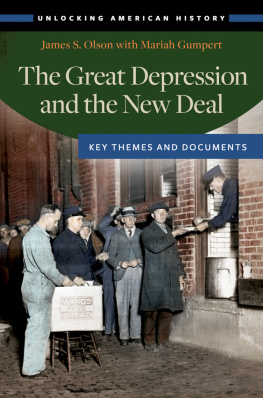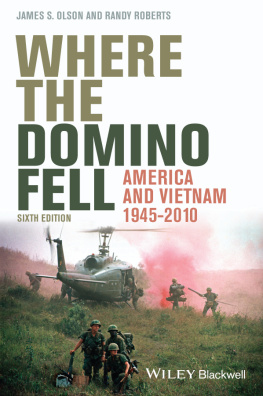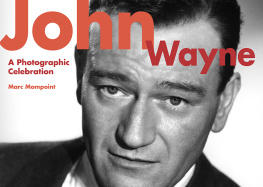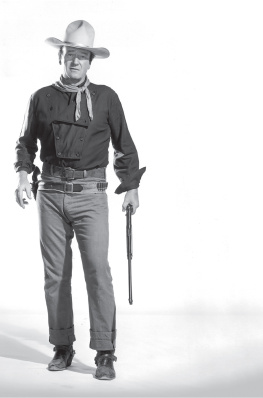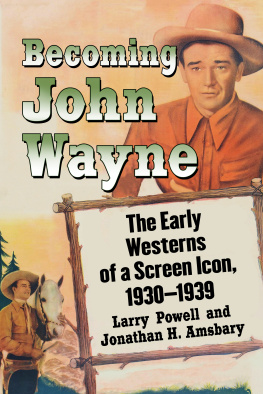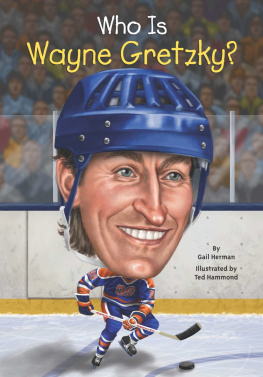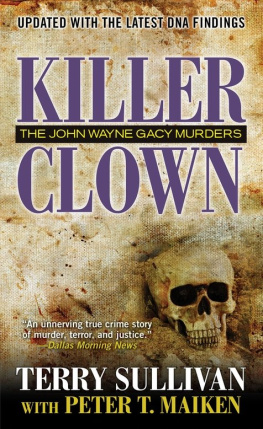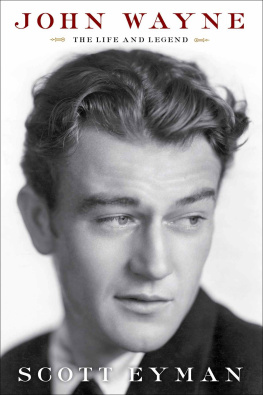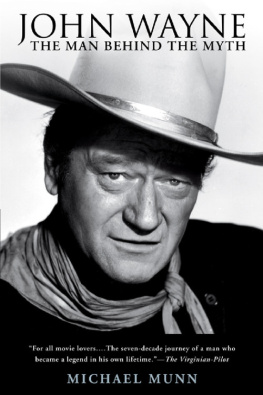JOHN WAYNE: AMERICAN
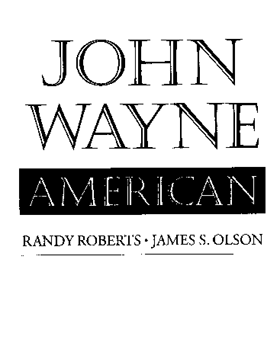

THE FREE PRESS
New York
Copyright 1995 by Randy Roberts and James S. Olson
All rights reserved. No part of this book may be reproduced or transmitted in any form or by any means, electronic or mechanical, including photocopying, recording, or by any information storage and retrieval system, without permission in writing from the Publisher.
The Free Press
A Division of Simon & Schuster Inc.
1230 Avenue of the Americas
New York, N.Y. 10020
www.SimonandSchuster.com
Printed in the United States of America
printing number
11 13 15 17 19 20 18 16 14 12
Text design by Carla Bolte
Library of Congress Cataloguing-in-Publication Data
Roberts, Randy
John Wayne: American / Randy Roberts, James S. Olson.
p. cm.
Includes bibliographical references and index.
ISBN 0-02-923837-4
ISBN-13: 978-0-029-23837-0
eISBN-13: 978-1-439-10834-5
1. Wayne, John, 1907-1979. 2. Motion picture actors and actressesUnites StatesBiography. I. Olson, James Stuart. II. Title.
PN2287.W454R63 1995
791.43028092DC20 95-12536
[B] CIP
To Burl Noggle, with thanks
RR
To my children: Susan, Karin, Heather, and Bradley
JSO
Contents
A Note to the Reader
John Wayne: American began germinating in our minds ten years ago during a summer afternoon jog in the hot Texas sun. He seemed a biographers dream. Waynes career spanned fifty years of Hollywood history, from silents and serials, to B movies, to modern epics, and during the quarter-century between 1949 and 1973 he was the leading box-office star in motion pictures. He also became an icon that transcended Hollywooda symbol of rugged pioneers in the Old West, the American soldier in World War II, and 100 percent Americanism in the Cold War. He trumpeted his right-wing beliefs (as they were then called) in many of his films and in hundreds of interviews. The fullness of his life and the bluntness of his opinions also made him wonderful biographical material. Not only did he star in over one hundred and fifty films, working for and playing opposite the leading names in the industry, he was never afraid to speak his mind, express unpopular opinions, and twit his political opponents. He was the most important American of our time, according to culture critic Eric Bentley. Richard Nixon and Ronald Reagan are only camp followers of Wayne, supporting players in the biggest Western of them all, wagons hitched to Waynes star. In the age when the image is the principal thing, Wayne is the principal image.
Much to our surprise, we soon discovered that serious biographers had ignored Wayne. Why? Cultural snobbery explains some of the mystery. In recent decades, the doyens of high culture, ensconced in academic ivory towers and leading editorial offices, have lost influence to the purveyors of popular culture. In an act of self-preservation, they dismiss the leading lights of mass culture, denying their significance in American life. As Neal Gabler wrote in his recent biography of Walter Winchell, cultural elitists do so to maintain their control over the past even as they have surrendered control over the present. Not surprisingly, they marginalized John Wayne, the brightest star in the pop culture firmament.
Part of the explanation is also political. As the cultural elite turned increasingly liberal, Wayne remained wedded to rock-ribbed, traditional values. He was no ideologue. He was a classical liberal, in a true Barry Goldwater sense, a mainstream American small-town conservative and a mainstream 1940s anti-Communist. Only as first Hollywood, then the country, moved to the left did he feel compelled to speak out. The liberal imagination, film critic Andrew Sarris wrote in 1979, steadfastly resists the idea of incorrigible evil, and the absolute vengeful morality it spawns in the persona of John Wayne. In person and in his films, John Wayne insisted that evil had to be punished, violently if necessary. Communism, he believed, was an incorrigible evil, socialism and liberalism mere fellow travelers, and he remained unrepentant about his convictions. Liberal critics could never give John Wayne his due because they could never see beyond his politics.
John Wayne may have irritated the cultural elite in America, but his popularity never dimmed in middle America. Even today, sixteen years after his death, he remains a constant in American popular culture. While critics and historians talk of Chaplin, Keaton, Stewart, Bogart, and Brando, fans continue to rent movies from John Wayne sections of video stores or watch John Wayne weeks of televised movies. Middle America grew up with him in the late 1920s and 1930s, went to war with him in the 1940s, matured with him in the 1950s, and kept the faith with him in the 1960s and 1970s. In an age when patriotism became suspect among liberals, he wrapped himself in the flag, expressing repeatedly a deep, heart-felt love of his country. He was so American, so like his countrybig, bold, confident, powerful, loud, violent, and occasionally overbearing, but simultaneously forgiving, gentle, innocent, and naive, almost childlike. In his person and in the persona he so carefully constructed, middle America saw itself, its past, and its future. John Wayne was his countrys alter ego.
The biography took us to archives from one side of America to another. We conducted seventy-five interviews and read more than three hundred unpublished oral histories. We poured over thousands of journal, magazine, and newspaper articles and books. Although we discuss his films in John Wayne: Americanhe was first and foremost an actorthis is not a critical examination of those movies. Although we discuss the development of John Wayne as a cultural icon, this is not a cultural study on John Wayne. It is a full biography, an attempt to describe his life and understand his popularity, to explain how he connected to so many Americans in such a visceral way and why his image has been so enduring.
Millions of people, from all corners of the world, feel familiar with John Wayne. A patron saint for conservatives, a misguided Neanderthal for liberals, the soul of the United States for non-Americans, John Wayne was and is something much more than just an actor. A few people, however, did know him very well, knew him as a man with all his strengths and faults. We thank all those who were willing to discuss with us their relationships with Duke. In almost every interview we were treated with unexpected courtesy, honesty, and friendliness. Our bibliography contains a list of the people we interviewed, but we would like here to single out a few of them.
Mary St. John was more than a personal secretary for John Wayne; she was his friend in the fullest and best meaning of the word. For nearly thirty years, she accompanied him on locations, handled his mail, tried to screen his visitors, and listened to him when he had a problem he wanted to discuss. Although like the Don in Godfather she eventually went into semiretirement, she was there for Duke, until the end of his life, whenever he needed something special done. Mary took us inside John Waynes private world. Our first interview with her lasted from 9 A.M.she insisted on punctuality and we were punctualto somewhere around l A.M. Subsequent interviews were a bit shorterthough never shortbut always insightful. Marys dead now. I hope she knew how much she meant to us.
Next page

